Abstract
A field survey of 273 residents in both years of the five family-practice residency programs in Ontario was undertaken to identify perceived sources of stress and to examine the relationship of stressors to work and career satisfaction, personal distress, and marital life. Differences were examined as between first-and second-year residents, and female and male residents, regardless of their year of training. Results of the survey indicate that first-year residents work more hours per week than do second-year residents, are more stressed by time-management problems and lack of self-confidence, and are more depressed. Women residents also work more hours weekly than do male residents, experience more stress related to time management and lack of self-confidence at work, and are more depressed, but drink less alcohol daily than do male residents. These results support previous work in this area. Future directions and recommendations for residency training programs are suggested.
Keywords: stress, work-related stress, residency training programs, family medicine
Full text
PDF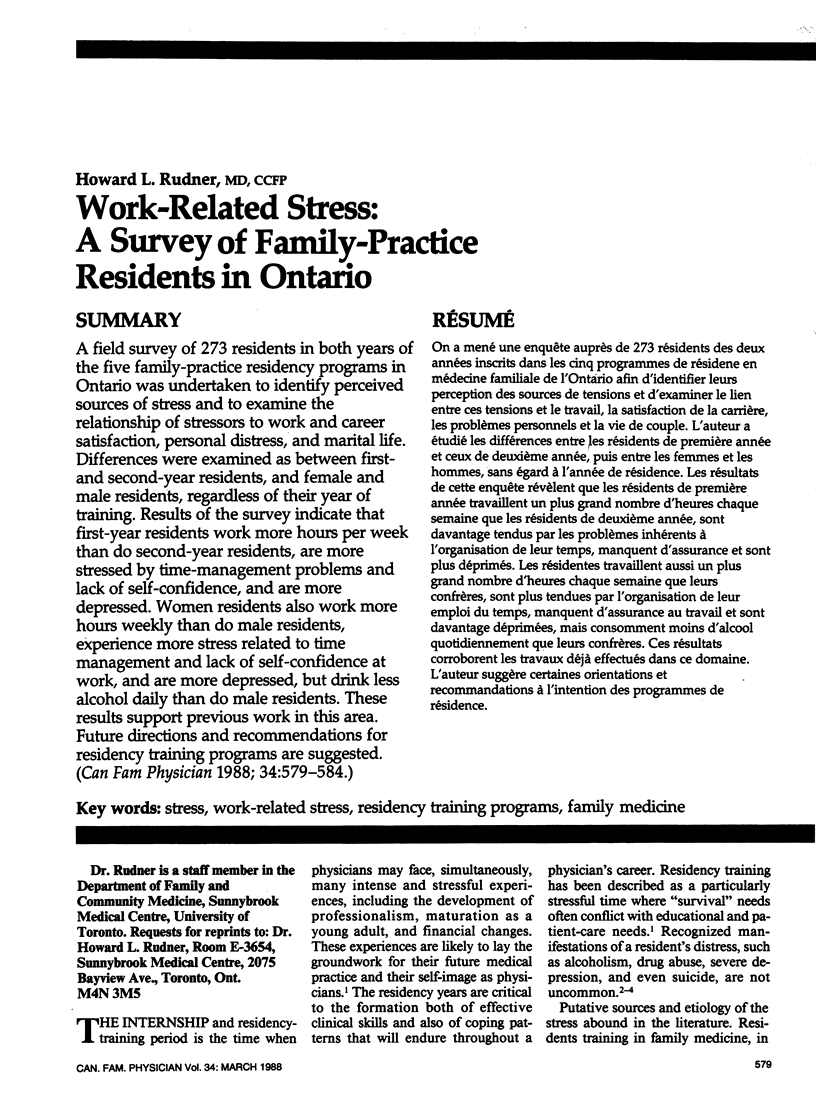
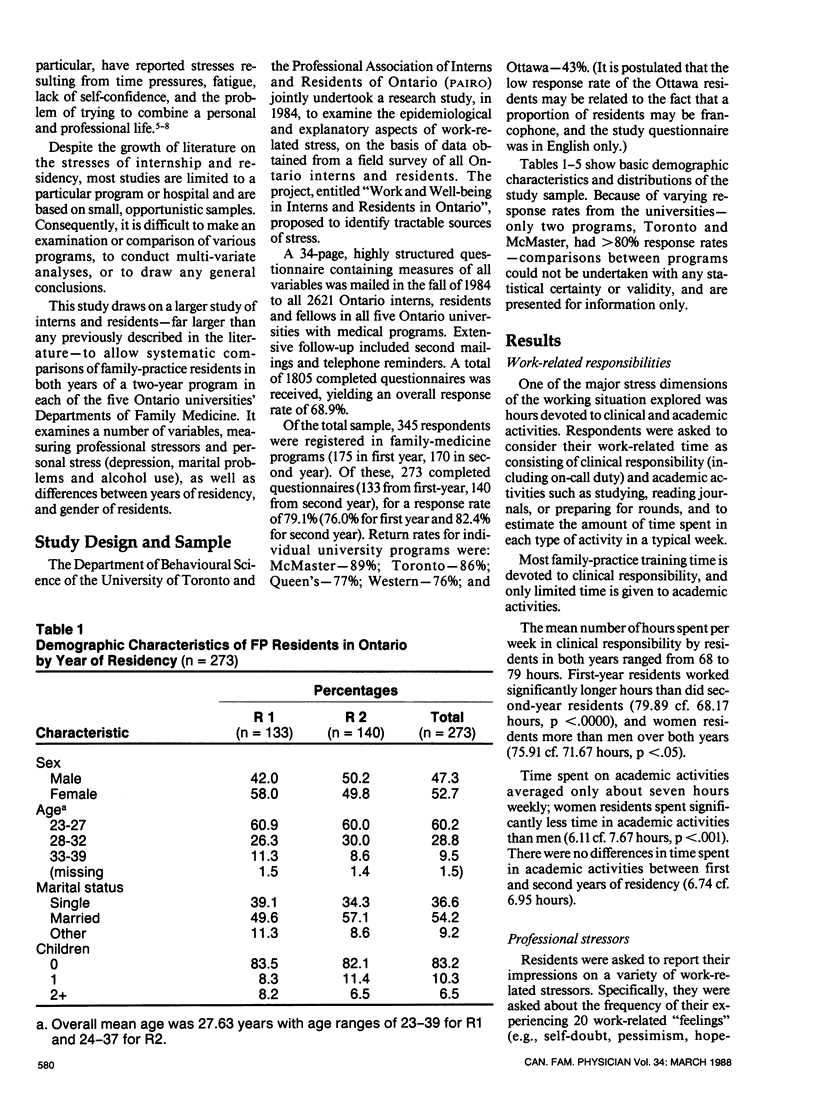
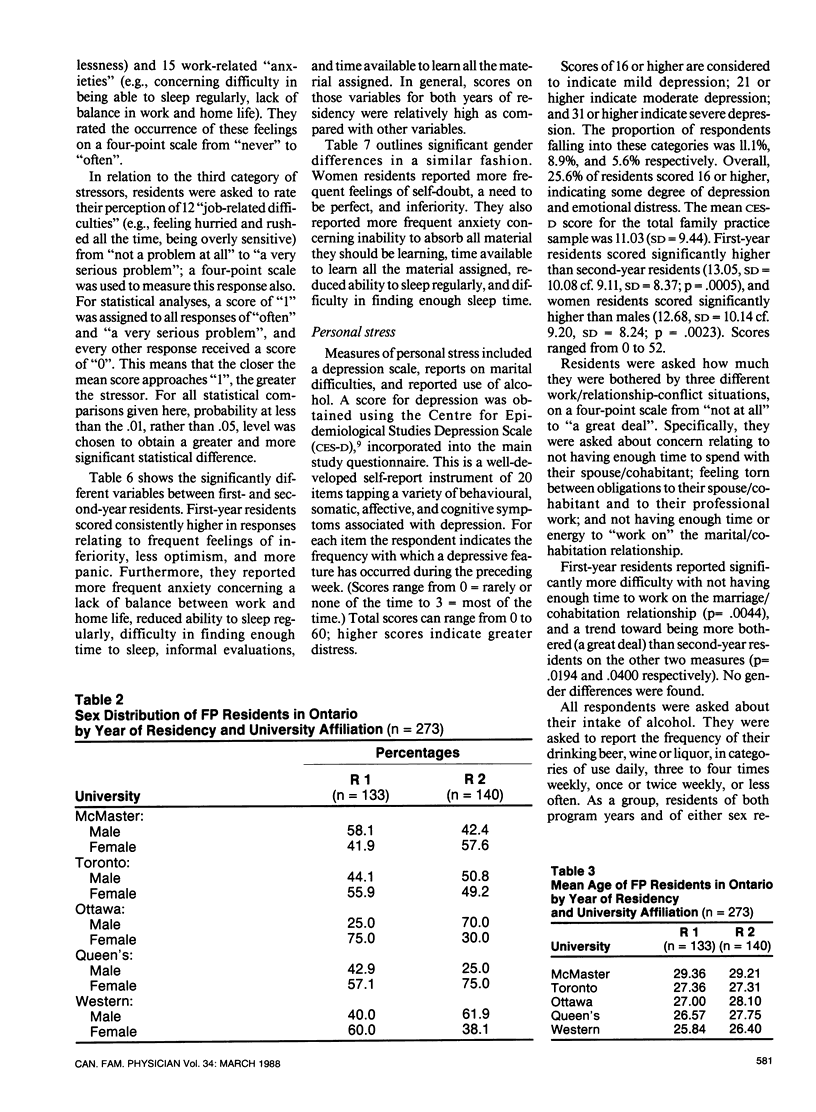
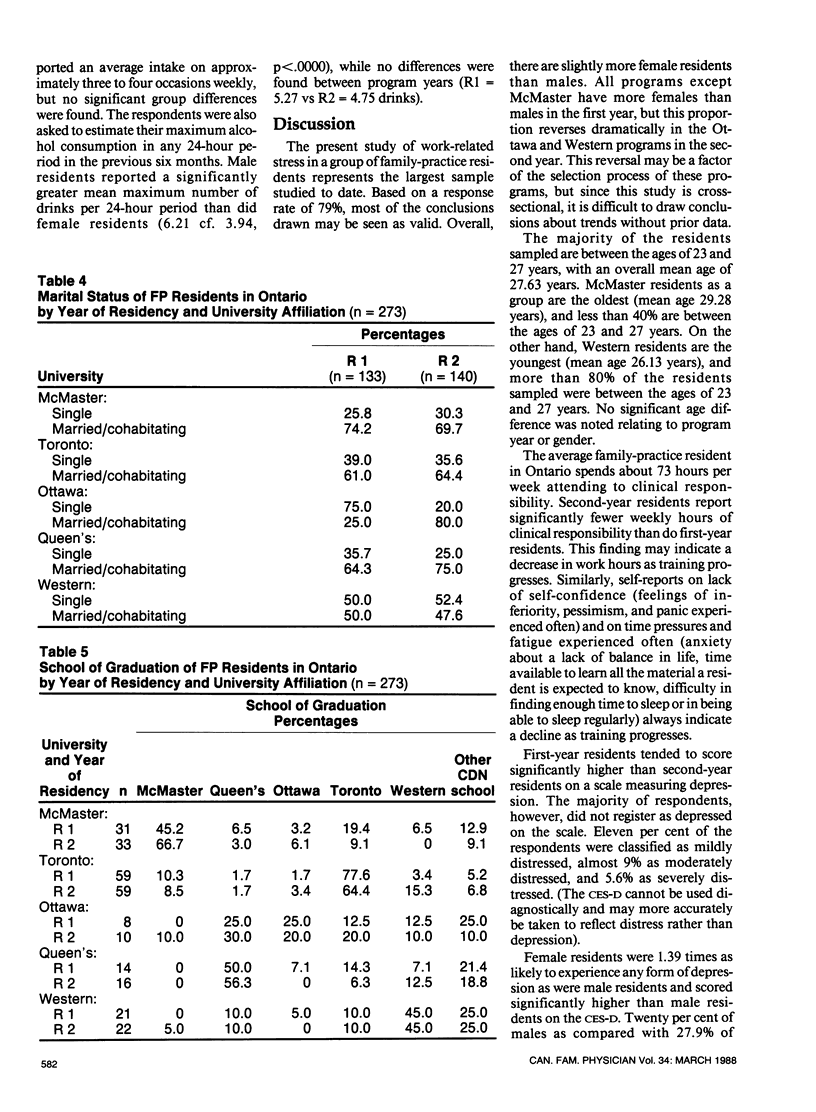
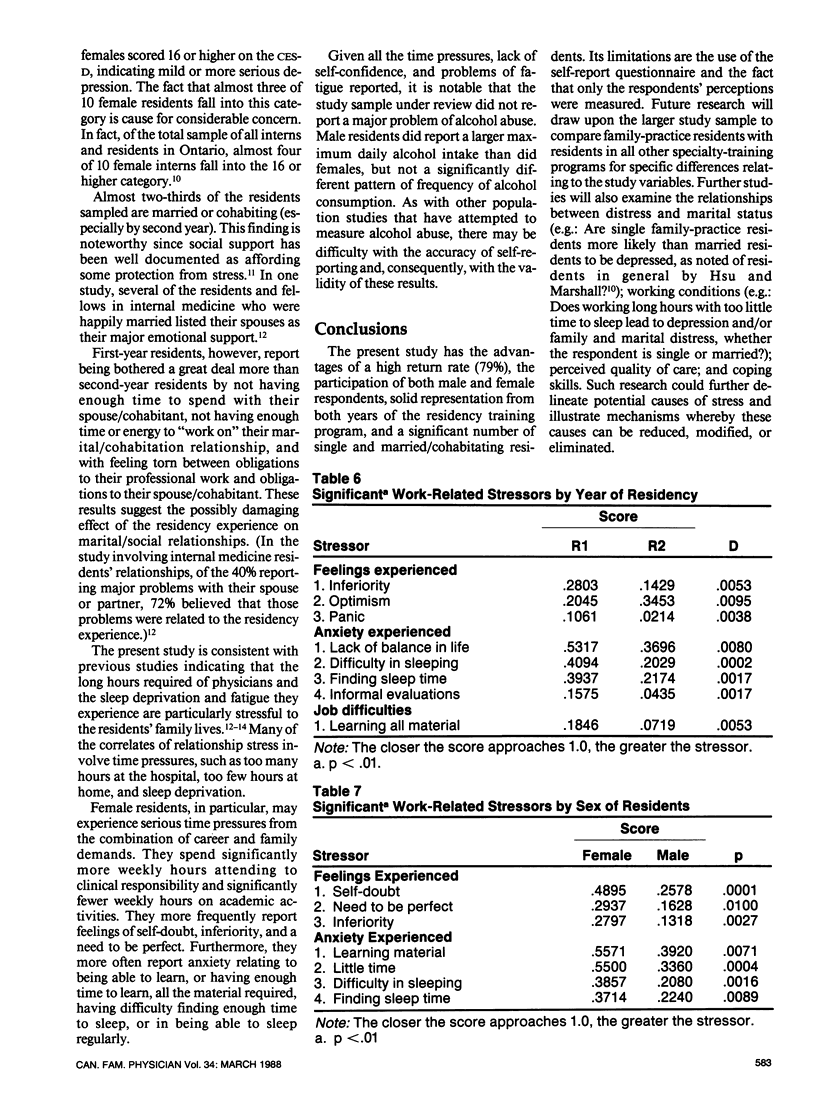
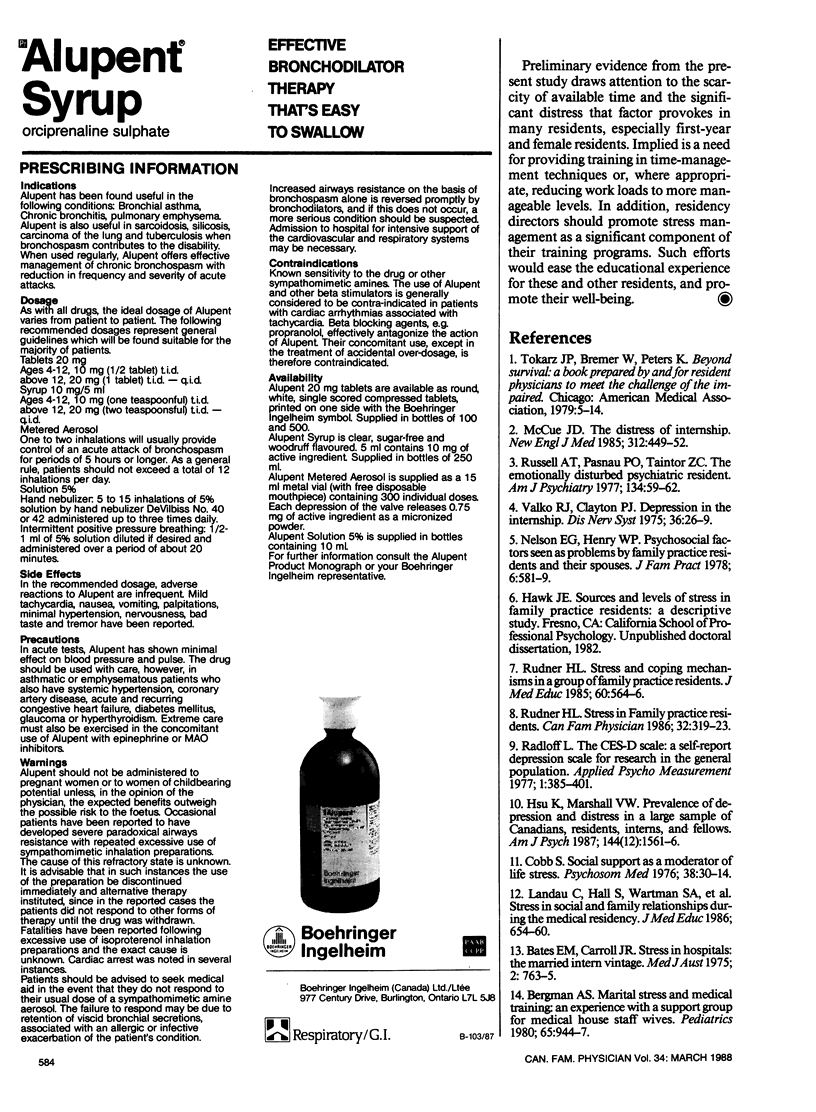
Selected References
These references are in PubMed. This may not be the complete list of references from this article.
- Bates E. M., Carroll P. J. Stress in hospitals. The married intern: vintage 1973. Med J Aust. 1975 Nov 15;2(20):763–765. [PubMed] [Google Scholar]
- Bergman A. S. Marital stress and medical training: an experience with a support group for medical house staff wives. Pediatrics. 1980 May;65(5):944–947. [PubMed] [Google Scholar]
- Hsu K., Marshall V. Prevalence of depression and distress in a large sample of Canadian residents, interns, and fellows. Am J Psychiatry. 1987 Dec;144(12):1561–1566. doi: 10.1176/ajp.144.12.1561. [DOI] [PubMed] [Google Scholar]
- Landau C., Hall S., Wartman S. A., Macko M. B. Stress in social and family relationships during the medical residency. J Med Educ. 1986 Aug;61(8):654–660. doi: 10.1097/00001888-198608000-00004. [DOI] [PubMed] [Google Scholar]
- McCue J. D. The distress of internship. Causes and prevention. N Engl J Med. 1985 Feb 14;312(7):449–452. doi: 10.1056/NEJM198502143120725. [DOI] [PubMed] [Google Scholar]
- Nelson E. G., Henry W. F. Psychosocial factors seen as problems by family practice residents and their spouses. J Fam Pract. 1978 Mar;6(3):581–589. [PubMed] [Google Scholar]
- Rudner H. L. Stress and coping mechanisms in a group of family practice residents. J Med Educ. 1985 Jul;60(7):564–566. doi: 10.1097/00001888-198507000-00011. [DOI] [PubMed] [Google Scholar]
- Russell A. T., Pasnau R. O., Taintor Z. C. The emotionally disturbed psychiatric resident. Am J Psychiatry. 1977 Jan;134(1):59–62. doi: 10.1176/ajp.134.1.59. [DOI] [PubMed] [Google Scholar]
- Valko R. J., Clayton P. J. Depression in the internship. Dis Nerv Syst. 1975 Jan;36(1):26–29. [PubMed] [Google Scholar]


